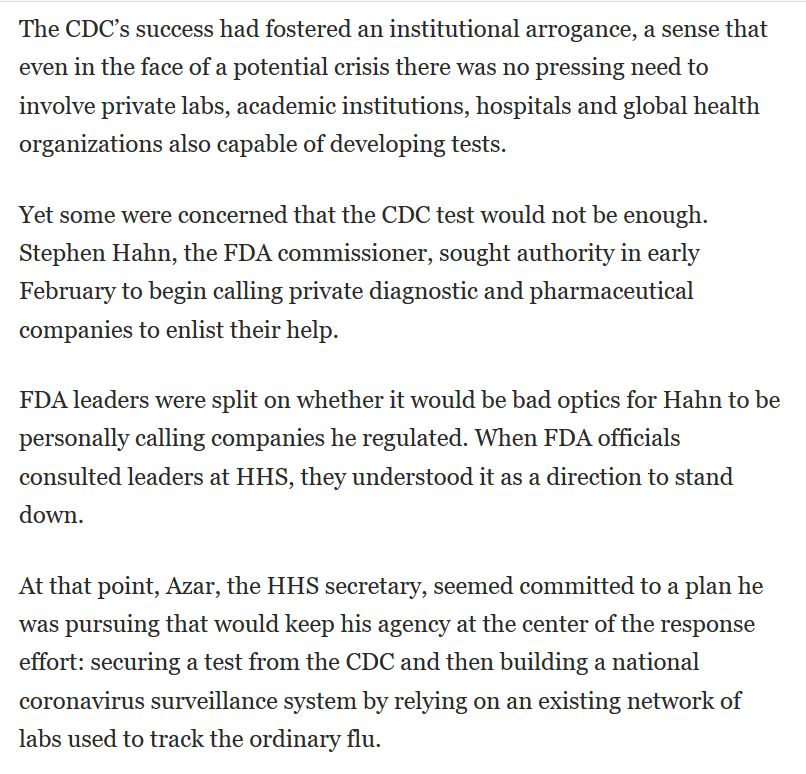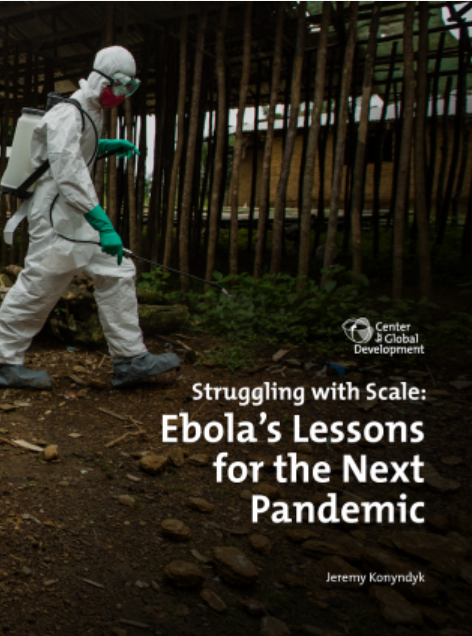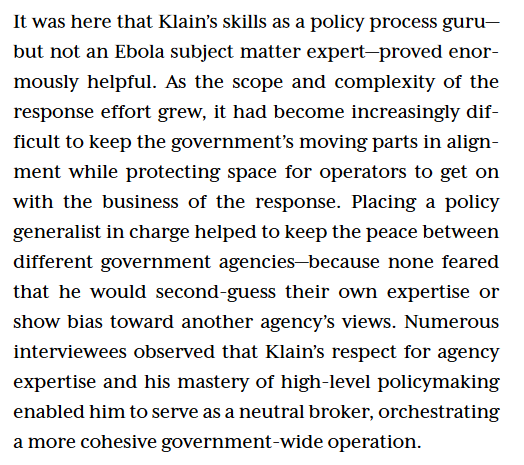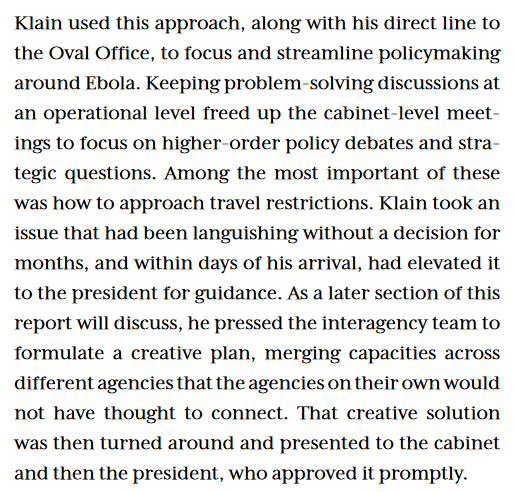Lemme tell you - from a disaster management perspective - why that’s bunk. This weekend's blockbuster WaPo piece is a good place to start.
There was a lot of red.
Numerous officials cited in the piece saw the potential risk. "The Richter scale hit 8" after the Wuhan lockdown began.
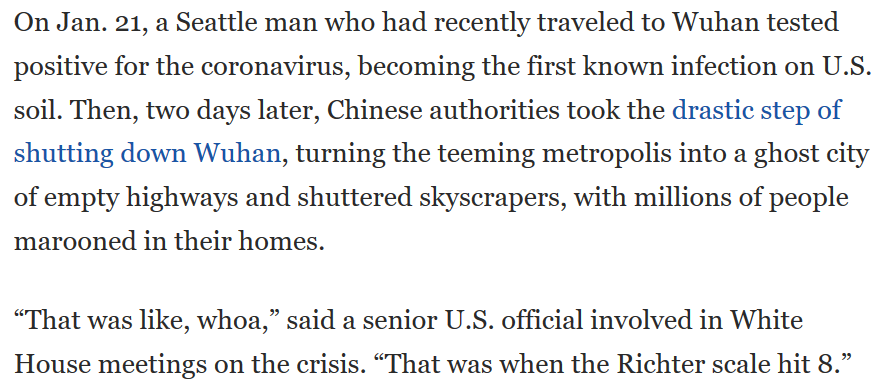
Leadership, management, and planning failures. There are many in the article, but the section on testing stands out.
And this in turn is why looking backward right now is important.
And this clearly isn’t happening. Instead we see the same chaotic mismanagement that reacts to events, muddles messages, and fails to strategize.
And it is not being addressed. It's arguably worsening.
When the longstanding website language contradicts Jared, it's the website that changes, not Jared.
When the informed medical view contradicts the President's uninformed opinion, it's the President who steps in to answer questions.
When an officer puts the safety of his crew ahead of the White House's preferred narrative, it's that officer who gets changed out (and now has COVID himself).
Which is why the “don’t politicize” comments are so deeply wrong. Because what they’re actually saying is “don’t hold us accountable." Even as fundamental problems go unresolved.
This is not theoretical. The country desperately needs to see this effort succeed.
1) early recognition of the risk
2) triggering response proactively rather than reactively
3) disciplined response execution
This virus therein reveals the best and worst of every government it encounters.
It's not (just) the strength of health system. South Korea, China, Italy, US all have capable systems, yet have seen wildly divergent results.
As long as that element remains broken, people will die. Airbrushing that harsh reality serves no one.

